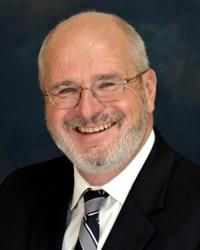William Faulkner, a cure for the great forgetting
OXFORD, Mississippi—America’s greatest novelist, a longtime resident of this lovely college town, once wrote:

John Krull, publisher, TheStatehouseFile.com
“The past is never dead. It’s not even past.â€
William Faulkner wrote that in “Requiem for a Nun,†one of his lesser-known novels. Like all his work, the book experimented with narrative techniques. Parts of it are told in prose infused with the author’s poetic sensibility. Other sections are presented as if they were a play.
All that experimentation, though, focuses on Faulkner’s overriding obsession, his quest to figure out how we come to terms with what we have done and what has been done to us.
How we make peace with the past.
Faulkner’s emergence nearly a century ago as a great writer represented a sharp break with the main branch of Southern fiction.
Prior to his arrival, most books about the South glorified what had gone before, overlooking or even revising the bigotry, the violence and the poverty that plagued the region. In the hands of Southern romantics, the Civil War was not a horrible American tragedy brought on by a wretched crime against humanity—human slavery—in which brothers, cousins and fellow citizens slaughtered each other by the tens of thousands, battling in mud and blood for four long years while disease after disease ravaged the troops, but a gallant struggle waged by selfless and courtly gentlemen.
The South’s apologists even denied the true cause of the war, saying that it was a fight for self-determination, one waged so the Confederacy could be “left alone.â€
In fact, President Abraham Lincoln had pledged to the Southern states that they would be left alone, but that didn’t stop them from firing the first shot in the murderous conflict that nearly tore the world’s great experiment in self-government apart.
Faulkner lifted the rock on Southern evasions and hypocrisies, revealing profound truths about race, regret and epic wrongs in the process.
His tales were not those of courtly noblemen defending a sacred lost cause but of desperate people doing often cruel and venal things for reasons that were far from selfless. He was one of the first white Southern writers to treat Black characters as fully functioning human beings. This allowed him to probe the tragic realities of segregation and the high price the South paid for living with and upholding the lie that some people deserve rights of liberty and personal self-determination … and some don’t.
Faulkner’s truth-telling was often met with hostility and contempt in his native land. Scorned as “Count No’Count†for his often patrician dress and manner, his neighbors here in Oxford showed little regard for the genius in their midst.
Even as Faulkner developed a worldwide reputation as one of the greatest writers of the 20th century, most of his townsmen considered him an embarrassment, a bizarre little man with an odd penchant for unsavory things.
They preferred the lie to the truth.
Now, as I walk through the rooms of Faulkner’s home and amble through the streets of the town where he lived, I think about how history echoes through eternity, how now distant struggles that have lain dormant may suddenly spring to life again.
We once again are amidst a great forgetting. States across the nation now are in the middle of a campaign to rewrite and obscure history once more, erasing grave injustices from the American consciousness and memory by banning books and suppressing any acknowledgment of basic truths.
In one particularly fatuous and vicious instance, the Republican governor of Florida who is also a presidential candidate, Ron DeSantis, has tried to repackage slavery—human servitude imposed by force of arms—as a kind of vocational education experience, a benign benefit rather than a cruel curse.
Now, as in Faulkner’s time, many Americans prefer the lie to the truth.
William Faulkner died a little more than 60 years ago, leaving behind the richest body of work ever produced by any American who ever picked up a pen.
He now is a writer more often admired than read, perhaps because his books make demands of both concentration and conscience on his readers.
This is a pity, because what he had to say is as timely now as it was 100 years ago.
We Americans still must come to terms with what we have done as a nation and a people.
Because the past is never dead.
It’s not even past.
FOOTNOTE: John Krull is director of Franklin College’s Pulliam School of Journalism and publisher of TheStatehouseFile.com, a news website powered by Franklin College journalism students. The views expressed are those of the author only and should not be attributed to Franklin College.





All of know these people.
They live among us.
They post here at the City County Observer, all the time.
Who? They live among us, the racist white nationalists.
They are people who believe that white men should do the governing and who equally feel that the votes of immigrants and black folks should either be not allowed or not count – IN ORDER TO MAKE SURE that white men win elections.
As Krull is making clear, these people are now embracing the Confederate Flag and racism as their creed.
It is an unkind truth.
But it is true.
Talk about repackaging. So a comment about how having a skill could lead to success even in a post slavery and war torn economy becomes pro slavery?
I can’t wait for you to emlighten us on the Democrat party’s stance on civil rights. Now there is something worthy of a rewrite. But that was just the Dixe-crats, or youthful indiscretion as one Democrat Klansman excused his racism.
Comments are closed.